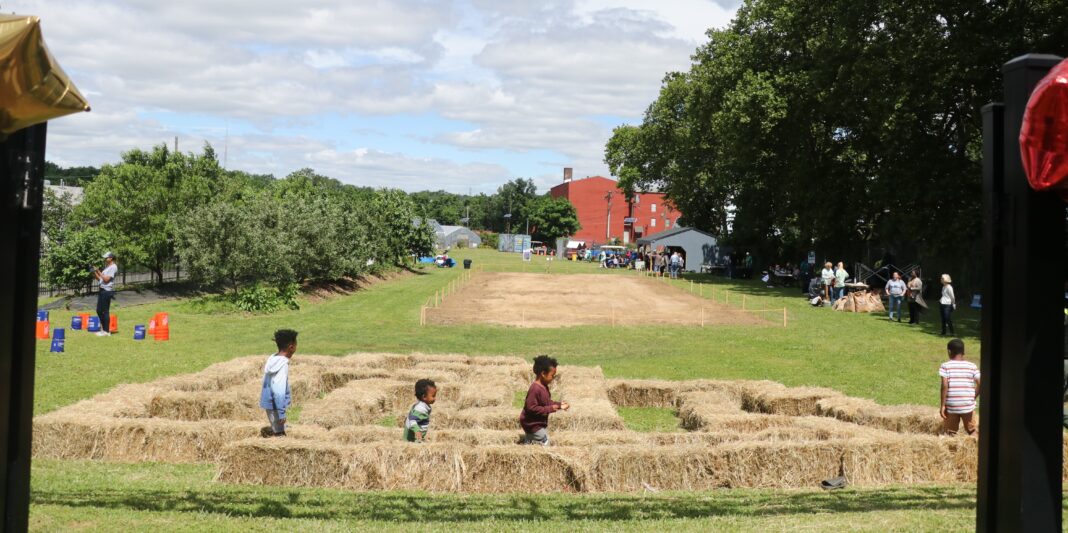On June 18th, Capital City Farms hosted various events connecting Juneteenth with their mission: to be a farm for the Trenton community.
“This is a Juneteenth Celebration. But this is just more of an extension of something that we already do, which is to get the community involved in urban farming, to let them know that this beautiful resource exists right here in their community. We grow food from seeds on the market, but we don’t sell the food. What we do is we raise them and we provide it to the community,” said Aaron T. Watson, Deputy Administrator for Mercer County and Executive Director of the Merced County Park Commission.
To celebrate Juneteenth, the Capital City farms held tables and events like a drumming circle and a hay maze for kids to enjoy including teaching African America heritage through a scavenger hunt. Wanda E Lacy, Director of Marketing and Community Outreach for the Mercer County Park Commission, explained that the scavenger featured well-known African American figures who were invested in agriculture, food advocacy, and botany.
“Now the thing about the scavenger hunt is that we have signs all over this farm from one end to the other…it encourages people to see everything that’s here at the farm…we have all sorts of vegetables at one end. We have herb gardens here. We have wildflowers here, we have an orchard at the other end,” Lacy said.
Part of this endeavor was using the farm’s produce to create meals for residents to enjoy. They had barbeque chicken and with herbs, greens, salads, baked goods, and teas provided from the plants at Capital City Farm. Yvonne Mitchell, a farm participant, was one of the cooks who prepared the meals.
“Everything is from the farm to the table to show you how you can put the meals together and enjoy the foods when freshly grown,” Mitchell said. “I enjoy cooking and sharing with people, and I love seeing the light in people’s faces when they eat something.”
The goal was to let them know that they could cook with fresh greens and make restaurant-style meals with produce from the farm. Walter Roberts, a farmer with the Capital City Farm, explained that it is a way for people to save money and cook at home.
“We just wanted to let people know that when you go out to a restaurant, or you’re eating something out there, you can get the same taste and flavor from right here, from something organically grown, you know, something that you get right from your neighborhood,” Roberts said.
Though the food wasn’t the only thing on the menu, residents were welcome to tour the farm and the different tables. Howells Living Farm was presenting a live demo of how crack-corn, a type of animal feed, was made during the 18th century.
“It’s important to know where your food comes from. So if this were food-grade corn, if you take it to a mill, this wood doesn’t grind it fine enough. This is crack corn… the big mills that grind it up with stones… but it becomes very, very fine and you get cornmeal that makes breads and all sorts of things,” said Samantha Hallett, a Volunteer at Howells Living Farm.
Bryana Tiggett, a park naturalist with the Talpehaking Nature Center, explained they were using a weed called Knotweed to build a space for bees to create their hives. “If you have more bees, then you have more things to grow, and you feed a larger base,” Tiggett said.





